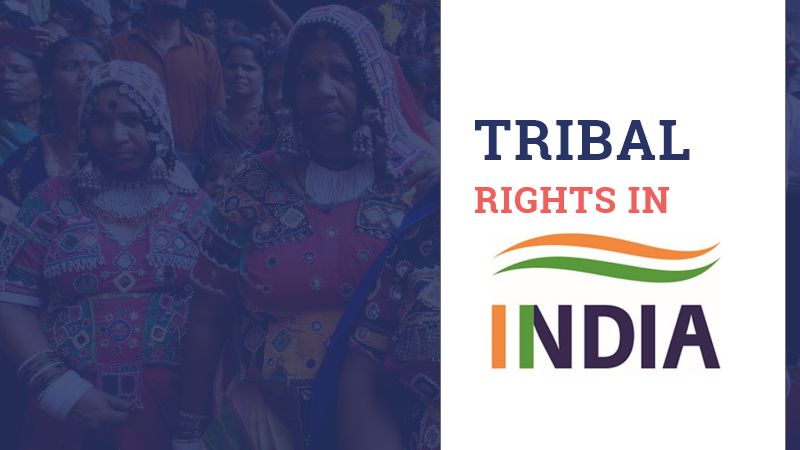Tribal Rights in India: Indigenous Peoples Law
Tribal communities, also known as indigenous peoples, have a rich cultural heritage and unique social structures that are deeply intertwined with the land and natural resources they inhabit. In India, tribal rights are enshrined in various laws and constitutional provisions aimed at safeguarding their distinct identity, land tenure systems, and socio-economic well-being. However, despite legal protections, tribal communities continue to face challenges such as land alienation, displacement, and marginalization. In this blog, we will delve into the legal framework governing tribal rights in India, explore key legislative and constitutional provisions, and discuss the challenges and opportunities for upholding indigenous peoples’ rights in the country.
Tribal Rights in India
-
Constitutional Safeguards for Tribal Rights:
The Constitution of India recognizes the special status of tribal communities and provides for several safeguards to protect their interests and promote their socio-economic development. Article 244 and the Fifth Schedule of the Constitution empower the President to declare certain areas with a predominantly tribal population as Scheduled Areas, where special provisions for governance and administration apply to protect tribal rights over land, forests, and natural resources. Similarly, Article 275(1) mandates the allocation of funds for the welfare of Scheduled Tribes (STs) to address their socio-economic needs and bridge development disparities.
-
Legislative Framework for Tribal Welfare:
The Parliament has enacted several laws and legislations to safeguard the rights and interests of tribal communities and promote their socio-economic empowerment. The Scheduled Tribes and Other Traditional Forest Dwellers (Recognition of Forest Rights) Act, 2006 (FRA) is a landmark legislation aimed at recognizing and vesting forest rights in tribal and forest-dwelling communities, including rights to land, minor forest produce, and community forest resources. The Panchayats (Extension to Scheduled Areas) Act, 1996 (PESA) empowers tribal self-governance institutions, such as Gram Sabhas, to manage local resources, exercise control over natural wealth, and promote participatory decision-making in tribal areas.
-
Land Rights and Land Alienation:
Land is central to the identity, culture, and livelihoods of tribal communities, who have historically been marginalized and dispossessed of their ancestral lands due to colonialism, commercial exploitation, and development projects. Land alienation, encroachment, and illegal transfer of tribal lands remain persistent challenges, undermining the socio-economic stability and cultural integrity of indigenous peoples. The FRA seeks to address land alienation by recognizing and restoring the forest rights of tribal and forest-dwelling communities, empowering them to assert their ownership and control over ancestral lands and resources.
-
Protection of Tribal Culture and Identity:
Tribal communities possess a rich cultural heritage, traditional knowledge systems, and distinct ways of life that are integral to their identity and resilience. The Constitution of India recognizes the right of tribal communities to preserve, protect, and promote their distinct languages, cultures, and traditions under Article 29 and Article 30. Additionally, the Protection of Tribal Culture and Heritage through Ethnographic and Socio-economic Survey and Research Act, 1987, aims to document and preserve the cultural heritage of tribal communities and promote awareness and appreciation of their cultural diversity and contributions to society.
-
Challenges and Opportunities:
Despite legal safeguards, tribal communities continue to face multifaceted challenges, including displacement, landlessness, poverty, and social exclusion. Development projects, industrialization, and infrastructure initiatives often result in the involuntary displacement of tribal populations from their traditional lands and habitats, leading to loss of livelihoods, erosion of cultural identities, and disruption of social cohesion. However, there are also opportunities for promoting tribal rights and sustainable development through participatory governance, community-led conservation initiatives, and inclusive development models that respect indigenous knowledge, values, and aspirations.
-
Role of Legal Advocacy and Social Justice:
Legal advocacy and social justice initiatives play a crucial role in advancing tribal rights, challenging discriminatory practices, and holding governments and corporations accountable for violations of indigenous peoples’ rights. Public interest litigation (PIL) and advocacy campaigns by civil society organizations, human rights activists, and tribal leaders have contributed to raising awareness, mobilizing support, and advocating for policy reforms and legal interventions to protect tribal rights and promote inclusive development.
Engage with Dhiti Law Firm:
Upholding tribal rights is not only a legal imperative but also a moral and ethical obligation to respect the dignity, autonomy, and self-determination of indigenous peoples. As custodians of traditional knowledge, stewards of natural resources, and guardians of cultural heritage, tribal communities have a vital role to play in sustainable development and environmental conservation. Dhiti Law Firm remains committed to promoting tribal rights, advocating for social justice, and empowering indigenous communities to assert their rights, reclaim their lands, and preserve their cultural heritage for future generations. Contact us today to learn more about our expertise in indigenous peoples’ law and how we can support your efforts to advance tribal rights and promote inclusive development in India.


